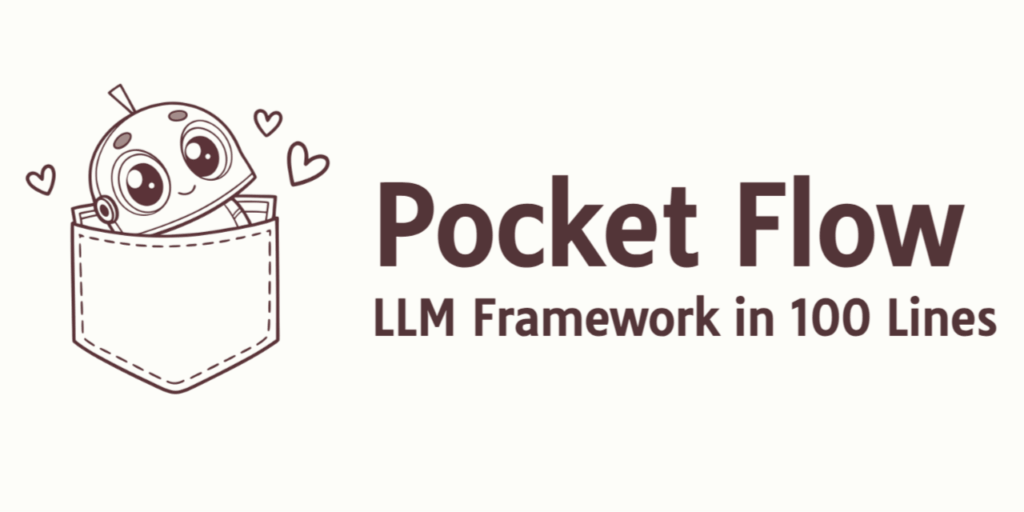PocketFlow
Basic Information
Pocket Flow is a minimalist LLM framework implemented in about 100 lines of Python that provides a small, dependency-free foundation for building LLM-powered applications. The repository is designed for developers who want a compact core abstraction based on a graph model to implement agents, workflows, retrieval-augmented generation, streaming, memory, and other common LLM design patterns. It contains the tiny pocketflow implementation that can be installed via pip or copied directly, a rich set of cookbook examples and tutorials that illustrate patterns like chat, structured output, workflow, multi-agent interaction, RAG, batch processing, streaming, supervisor patterns, parallel execution, text-to-SQL, code generation, and voice chat. The project also publishes language ports and promotes an "agentic coding" workflow where humans design and agents generate code. Documentation, video tutorials, and community channels accompany the code to help developers learn and extend the framework.
Links
Categorization
- Agentic AI
- agentic-framework
- agentic-workflow
- Agents
- AI framework
- ai-frameworks
- AIAgent
- AIAgents
- Artificial Intelligence
- flow-based-programming
- flow-engineering
- large language models
- large-language-model
- LLM agent
- LLM framework
- pocket-flow
- pocketflow
- retrieval-augmented-generation
- workflow
- workflow-orchestration








